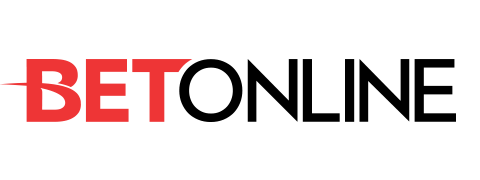What is ROI in poker? In the poker world, ROI is a crucial metric for players. ROI, short for "return on investment," is a criterion commonly used by tournament players to evaluate a player's sustained average profitability over time. In this comprehensive article, we will explore the concept of ROI in poker, discuss its significance, how to calculate it, and provide insights into improving your poker ROI.

Calculating ROI in Poker
Calculating your ROI in poker is a straightforward process, often aided by a calculator or spreadsheet. Start by subtracting your total tournament buy-ins from your winnings to find your net profit. Next, divide this figure by the sum of your tournament buy-ins.
The ROI formula is:
ROI = (Net Profit / Total Buy-ins)/ sum of total buy-ins * 100
For instance, you win $200 from a $50 online tournament. Your ROI for this tournament (200-50)/50*100 would be 300%.

Scenario 2: Assume you have played in 100 online poker events on PokerStars with a total buy-in of $1,000. After all of these tournaments, your net profit is $500. To determine your ROI:
ROI = ($500 / $1,000) * 100 = 50%
In this case, your ROI is 50%, which means you made a 50-cent profit on every dollar you put in buy-ins. You can also use online poker ROI calculators to do all these calculations with a single click.
The table below helps players make informed decisions about their tournament buy-ins and when to move up or down in stakes based on their bankroll size. It's a tool for responsible bankroll management essential to achieve a positive ROI.
| Buy-In | Move down | Move up | Buy-in Reserve |
|---|---|---|---|
| 2.25 | 170 | ||
| 3.4 | 113 | 275 | 17 |
| 5.5 | 170 | 550 | 19 |
| 11 | 275 | 1100 | 25 |
| 22 | 550 | 1650 | 25 |
| 33 | 1100 | 2750 | 17 |
| 55 | 1650 | 5400 | 20 |
| 108 | 2750 | 10750 | 25 |
| 215 | 5400 | 25 |
Bankroll Management for Tournaments
What is the Ideal ROI in Poker?
This subject is debatable, meaning some poker players may be content with a lower ROI than others. A 15-20% ROI for most casual players is terrific, whereas anything above zero is a positive result for new players.
A desirable ROI typically ranges from 5% to 20% for serious heads-up SNG players. However, if you play in games with limits up to $30, it's prudent to aim for an ROI between 15% and 20%. It means striving for an earnings of about $6 per game, ensuring that your time investment is worthwhile.
Anything between 10%-20% is considered okay for players grinding tournaments. Taking into consideration the volume of games played is another crucial factor. Tournament players should strive to play 1,500 games or more to calculate their ROI. This extensive game count effectively incorporates the element of variance, accounting for the inevitable swings in fortune, thus offering a more accurate ROI estimation.

How to Enhance Your ROI in Poker
Start by playing low-stakes games. Micro-stakes MTTs are often considered the lowest of low stakes. Buy-ins in this category can range from as low as $0.10-$5. Lowstakes MTTs can range from $5-20 and $25-$50. These games attract amateur players due to their affordability. Newbies make many mistakes, allowing you to take advantage of these errors and improve your ROI.
It's crucial to exercise caution and adopt a tight playing style when seated in an early position, gradually transitioning to a looser approach as you move to the middle position and even more so when you reach the hijack and cutoff. It's important to note that your opponents will typically adhere to these guidelines as well, so be more inclined to respect a raise coming from an early position compared to one coming from the button.
In a nutshell, the best method to increase your return on investment is to improve your poker game and play versus novice players. The difference in skill levels between a $5 tournament and a $210 tournament will result in a larger ROI for you. Find a stake where you can make money and play solid poker, and you will have a positive ROI.
Understanding Return on Investment (ROI) is vital. Whether playing on GG Poker, AmericasCardroom, or 888Poker, tracking your ROI helps measure your success and refine your strategy for a rewarding journey.
A downswing refers to a period of unfavorable results where a player experiences a series of losses or below-average results despite making the right plays.
The table below illustrates the probability of experiencing downswings of varying lengths based on the number of games played and the buy-in (BI) level. But why is that? Well, the more games you play, the more variance you encounter. Variance is the natural ups and downs in poker due to luck. In a smaller sample of games, these swings can look more pronounced. As you play more games, variance tends to even out, and you get a better estimation of your ROI and skill level. You can also up your game and your ROI by investing in various GTO strategy databases.
A 50% ROI can significantly affect the likelihood of experiencing a downswing. If you have a 50% ROI, on average, for every dollar you invest, you make back $1.50.A high ROI indicates you're often winning. It means you'll experience fewer downswings, and they won't be as severe.
| Downswing of | 100 Games | 500 Games | 2000 Games |
|---|---|---|---|
| 20 BI or more | 25.1% | 89.4% | 99.99% |
| 30 BI or more | 4.5% | 54.1% | 97.2% |
| 40 BI or more | 0.5% | 26.7% | 80.3% |
| 50 BI or more | 0.0% | 12.0% | 55.9% |
| 75 BI or more | 0.0% | 1.2% | 16.7% |
| 100 BI or more | 0.0% | 0.06% | 4.37% |
Factors Affecting ROI in Poker
We have covered most of the elements affecting a player’s overall ROI in this article in one way or another.
- Skill and Strategy: A player's skill level and strategy impact their ROI immensely. Meaning skilled players make better decisions regularly, reducing losses and increasing earnings. Since they understand different game elements like calculating pot odds, bankroll management, and much more, they are in a prime position to dominate their opponents, attaining a positive ROI.
- Bankroll Management: It's critical to manage your bankroll effectively. Playing too high stakes for your bankroll can lead to significant losses and will deplete your bankroll faster, leading to a negative ROI.
- Game Selection: Choosing the right poker game and table is essential. Due to variables like player skill levels and rake, certain games are inherently more lucrative than others. A good ROI depends on choosing the correct game for your skill level and bankroll.
Summary
Focus on continuous improvement, efficient bankroll management, game selection, a long-term perspective, tracking your results, and tilt control to increase your poker ROI. It's crucial to consider volume and costs when estimating your entire poker profits. Good luck at the tables.























